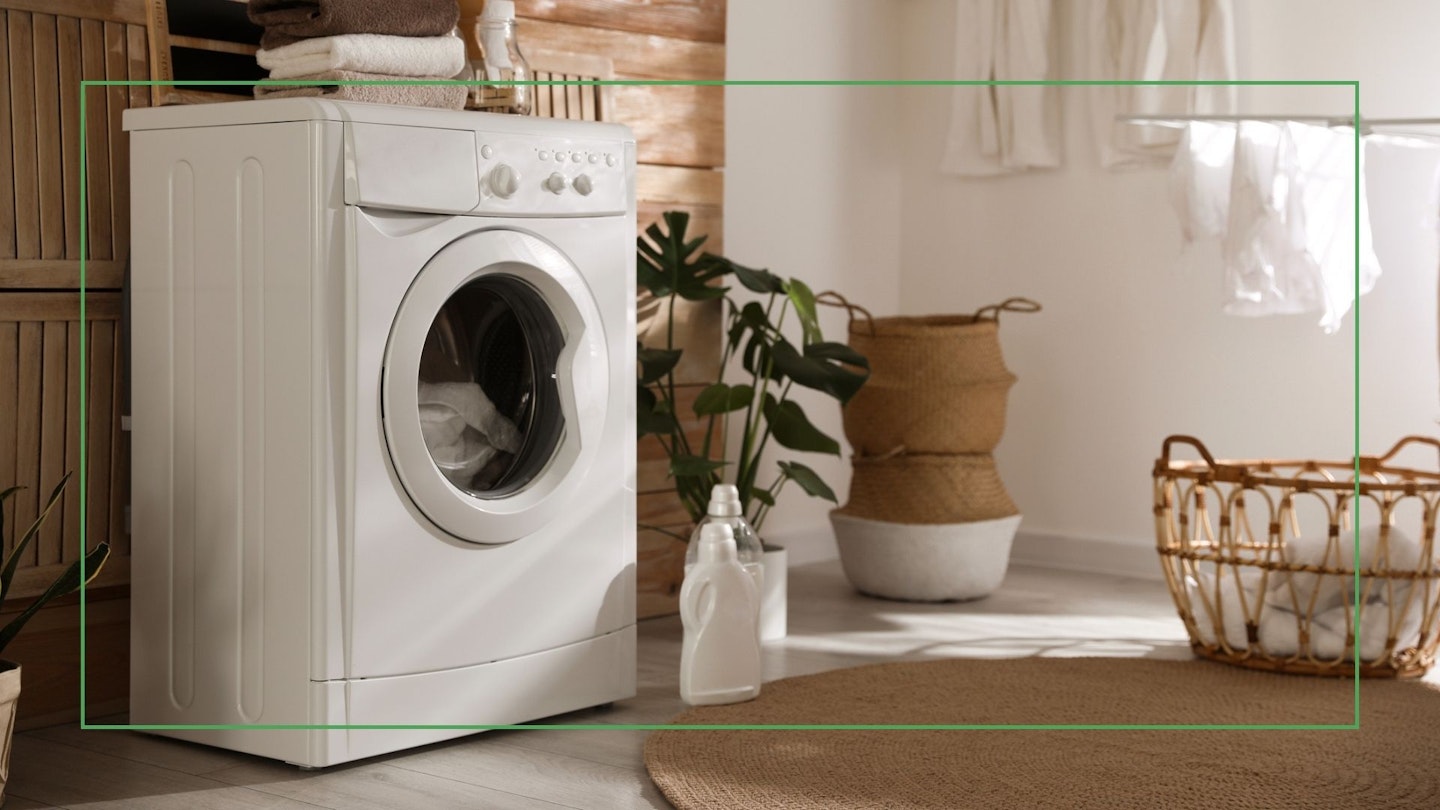Whether you've just moved house or your old machine has popped its clogs, you'll want a new washing machine for your home. But with so many different washing machines on the market with completely different specs, it can be hard to decipher what you actually need. We've broken down everything there is to know about washing machines so you can choose your new one with complete ease.
Washing machines can differ vastly in cost, from £200 all the way up to some premium options nudging the £2,000 mark. So when on the hunt for a new machine, you'll want to make sure you're getting the best value for money to suit your washing needs. Do you need specific programmes to tackle the sweat and grime that comes from an active household? Maybe you need a large drum capacity to suit a growing family? Or maybe you need a machine that's as discreet and quiet as possible for your open-plan living?
At every price point, you can find a variety of washing machine types and features to meet the demands of family life. Take this buyer's guide for a spin-cycle to find out everything there is to know before you buy.
Washing Machine Types
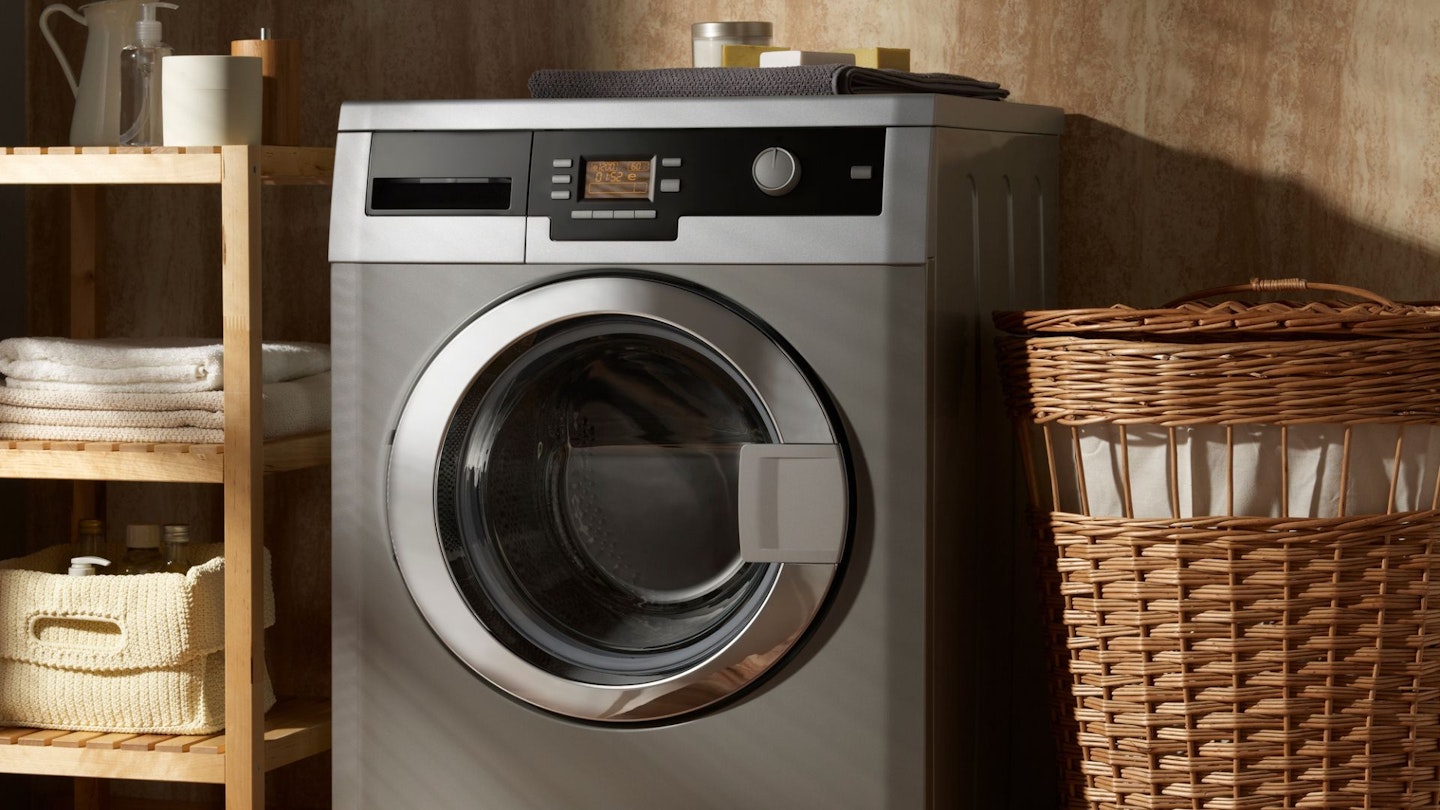
What Is A Freestanding Washing Machine?
A freestanding washing machine is the most common type of washing machine. Designed to just stand on its own in your utility or in the space beneath your kitchen counter, the machine is clearly visible alongside your cupboards. You can fit it wherever there’s a connection.
If you do plan to fit it under a kitchen counter, make sure to be aware of your space available. It’ll need to fit under the work surface, be the right width to fit the allocated space, and you might want to consider one that isn’t too deep. If your washing machine has more depth compared to your counter, it’ll jut out into your floor space.
Pros
More choice of washing machine sizes and load capacities
Easier to fit
Cons
Variety of sizes – you’ll need to decipher which is best for your space
In plain sight
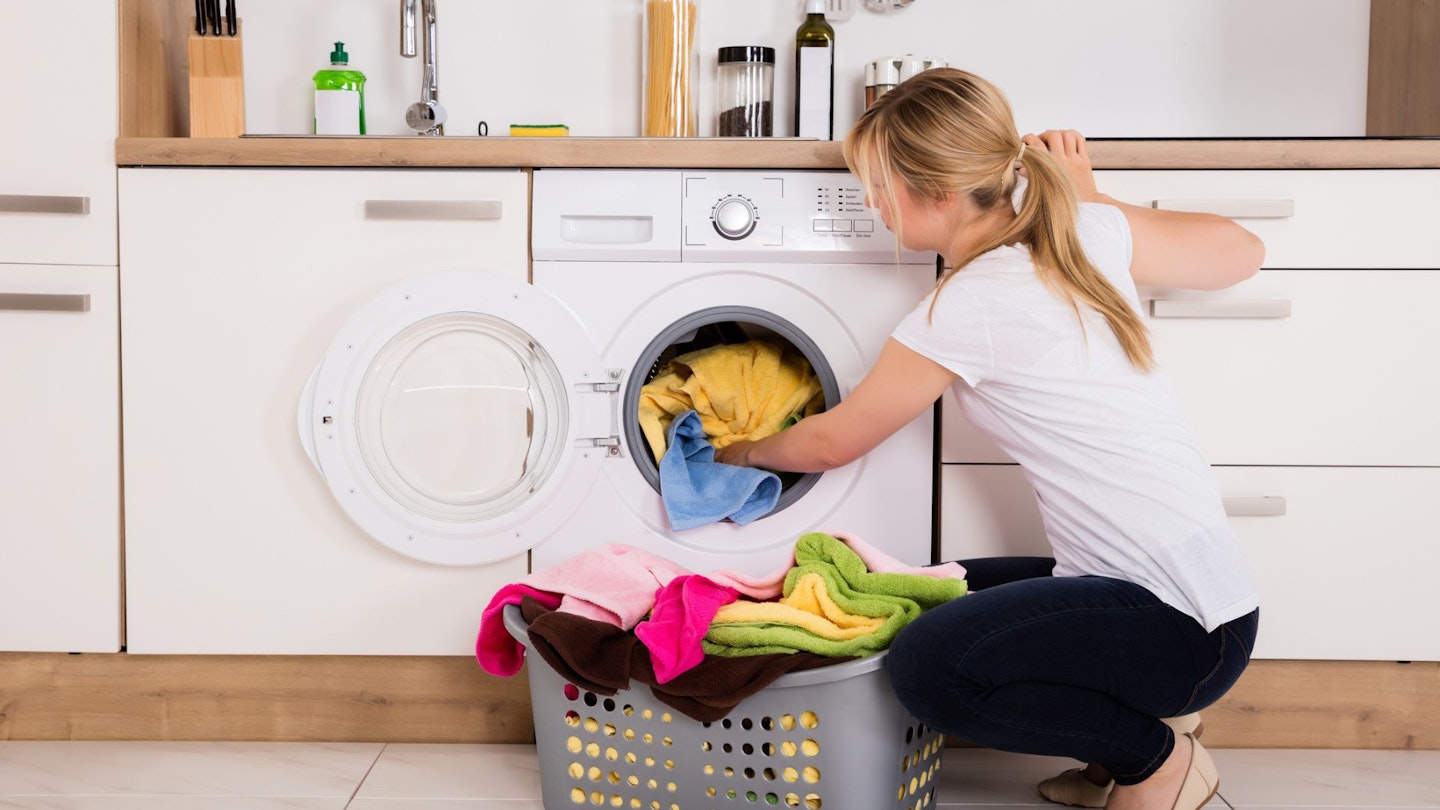
What Is An Integrated Washing Machine?
An integrated washing machine is one that’s designed to easily hide away, whether that’s beneath your counter in a matching kitchen unit or behind a kitchen cupboard door. It’s perfect if you have other integrated appliances, prefer a more sleek aesthetic, and want to keep your washing machine out of sight, out of mind.
However, integrated washing machines tend to be more expensive and install, worth considering if you’re working to a budget. You’ll also need to have the integrated space available which is why buying a new integrated machine is best for replacing an existing built-in machine or for kitchen refurbs.
Most integrated machines are designed to fit in a standard kitchen cupboard, but make sure to check the sizes to be sure.
Pros
Hidden away for a clean and tidy aesthetic
Comes in a standard size so easier to find the best fit
Cons
More expensive compared to freestanding
Need to have the integrated space – can’t be placed just anywhere
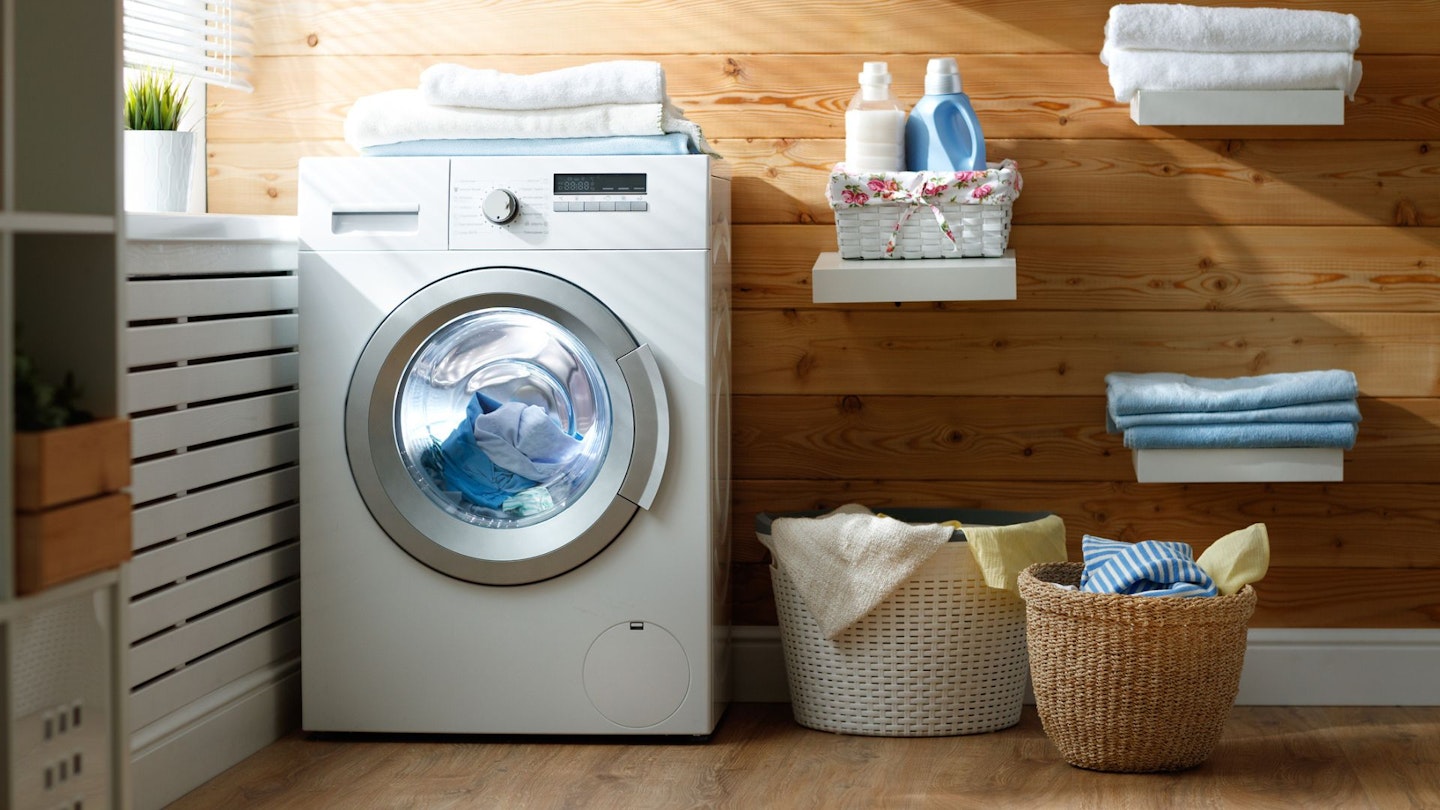
What Is A Washer Dryer?
You guessed it; a washer-dryer is a washing machine and a tumble dryer in one. It’s great if you’re limited on space and can only fit one appliance in. It’s available to buy as freestanding or integrated.
The washing machine component is comparable to traditional washing machines, but it’s worth noting that the tumble dryer won’t perform quite the same as the standalone version. There’s less capacity to dry clothes and they may take longer in comparison.
Pros
Washing machine and tumble dryer in one
Available in different fits
Space saving
Cons
The dryer is not as high performing compared to freestanding tumble dryers
What To Look For When Purchasing A Washing Machine
Alongside the type of washing machine, there are plenty of key features that can set one appliance apart from another. And different features will suit different households - it can depend on your household size, the amount of washing your family gets through in a week, and even the fabrics used in your home.
Key Features To Look For
Load Capacity
The load capacity dictates how much you can load and wash in your machine at one time. Washing machines can vary in capacity from 6kg drums all the way up to 14kg in some cases. If you’re not sure which load capacity to go for, here’s a general guideline:
6kg: Small drum – Best for single households.
7kg: Standard drum – Best for small households of two to three.
8kg-9kg: Large drum – Best for small families.
10kg+: Extra-large drum – Best for large, active families.
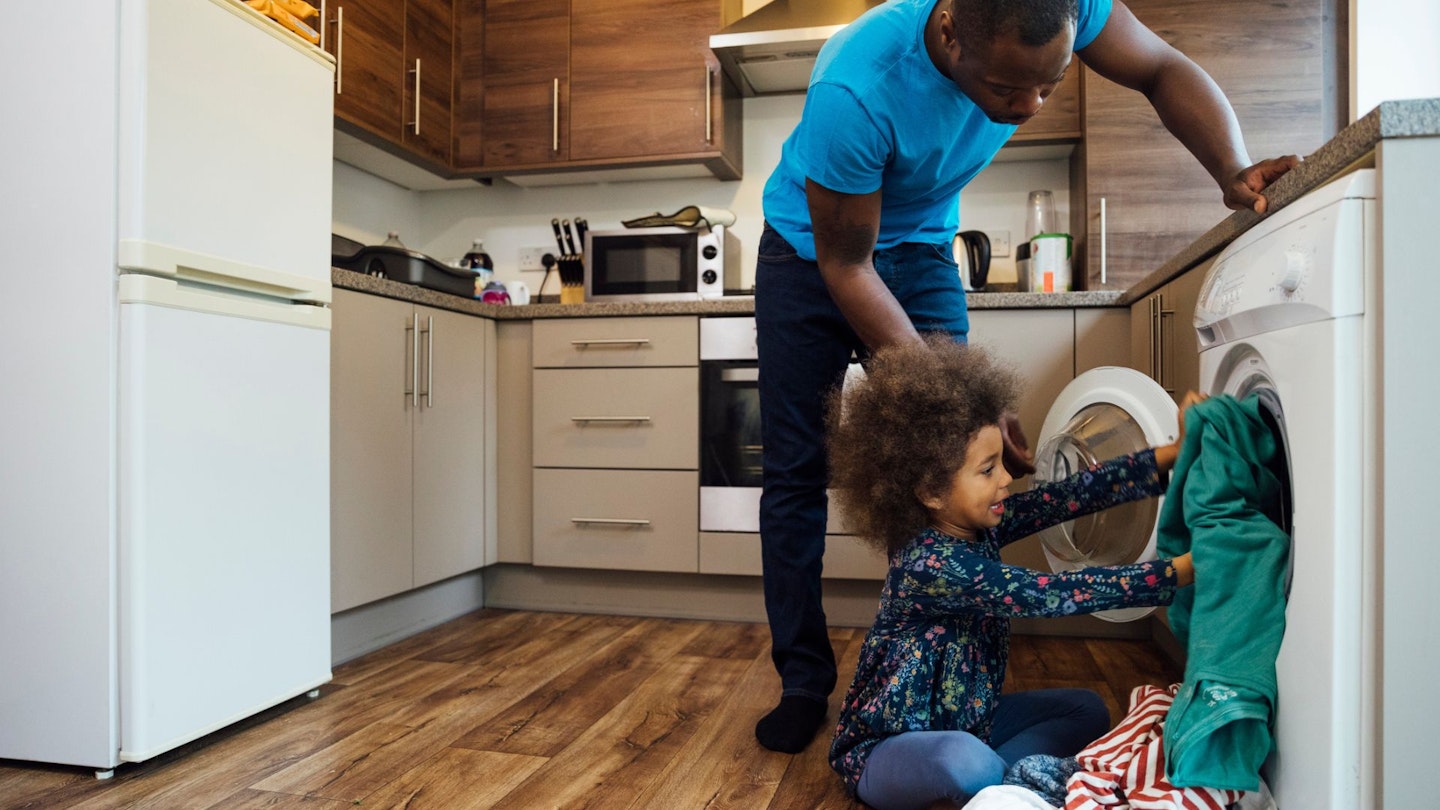
Choosing a machine that’s too small could risk you overloading and damaging the machine. Meanwhile, choosing a machine that’s too big could waste water and energy. What you want to be aiming for is the optimal load capacity to ensure you do large loads and fewer washes, which will save you time, energy, and money in the long run.
Size
The load capacity can affect the size of your machine; you’ll likely find that the larger the load capacity, the larger the washing machine. Make sure you size up your new washing machine before buying to make sure it can fit in its allocated space.
A standard freestanding washing machine can measure H82-85 x W60 x D40-70cm dependent on the drum. Integrated machines typically have H82 x W60 and a depth of between 50-60cm.
But it’s not just the size of the machine you need to consider. You’ll also need to add 7cm to the depth of a freestanding machine and 3cm to the depth of an integrated washer to allow for plugs and a pipe connection.
If you want to put a freestanding machine beneath your kitchen countertop in an alcove, the added depth in comparison to integrated washers will likely make them too deep for a cabinet door in the front to be an option. If you are replacing a freestanding washing machine in your kitchen, we’d recommend measuring the old machine to find one that matches the existing dimensions.
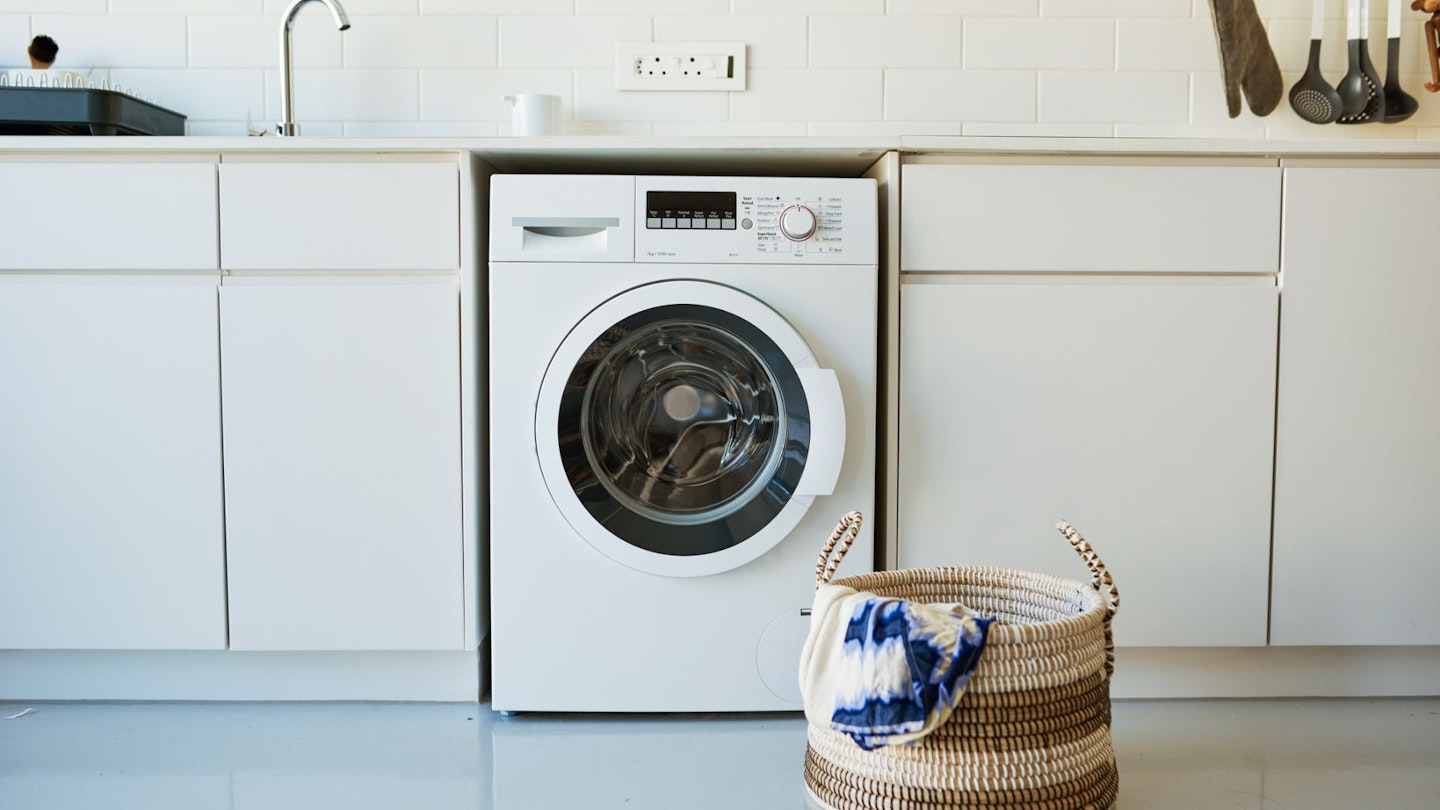
Spin speeds
The range of maximum spin speeds in the UK varies between 1000rpm (rotations per minute) and 1600rpm. An increased spin speed will give you dryer clothes at the end of your cycle, less residual water trapped in your garments, and reduce the amount of time clothes need to be in the washing machine with quicker cycles.
However, a faster spin could result in a louder machine due to the vibrations. It could also impact the amount of energy used to achieve the quick rotations. It’s worth checking your wardrobe materials; synthetics and cotton can handle a fast speed, but wool and delicates will require more specialised care.
Energy Efficiency
The more energy efficient your machine is the less money, and energy it uses to run. In washing machines, this is calculated by the amount of energy used over 100 cycles during an ‘Eco 40-60’ programme.
For a clear indicator of how energy-efficient your washing machine is, look for its energy rating. The higher the better.
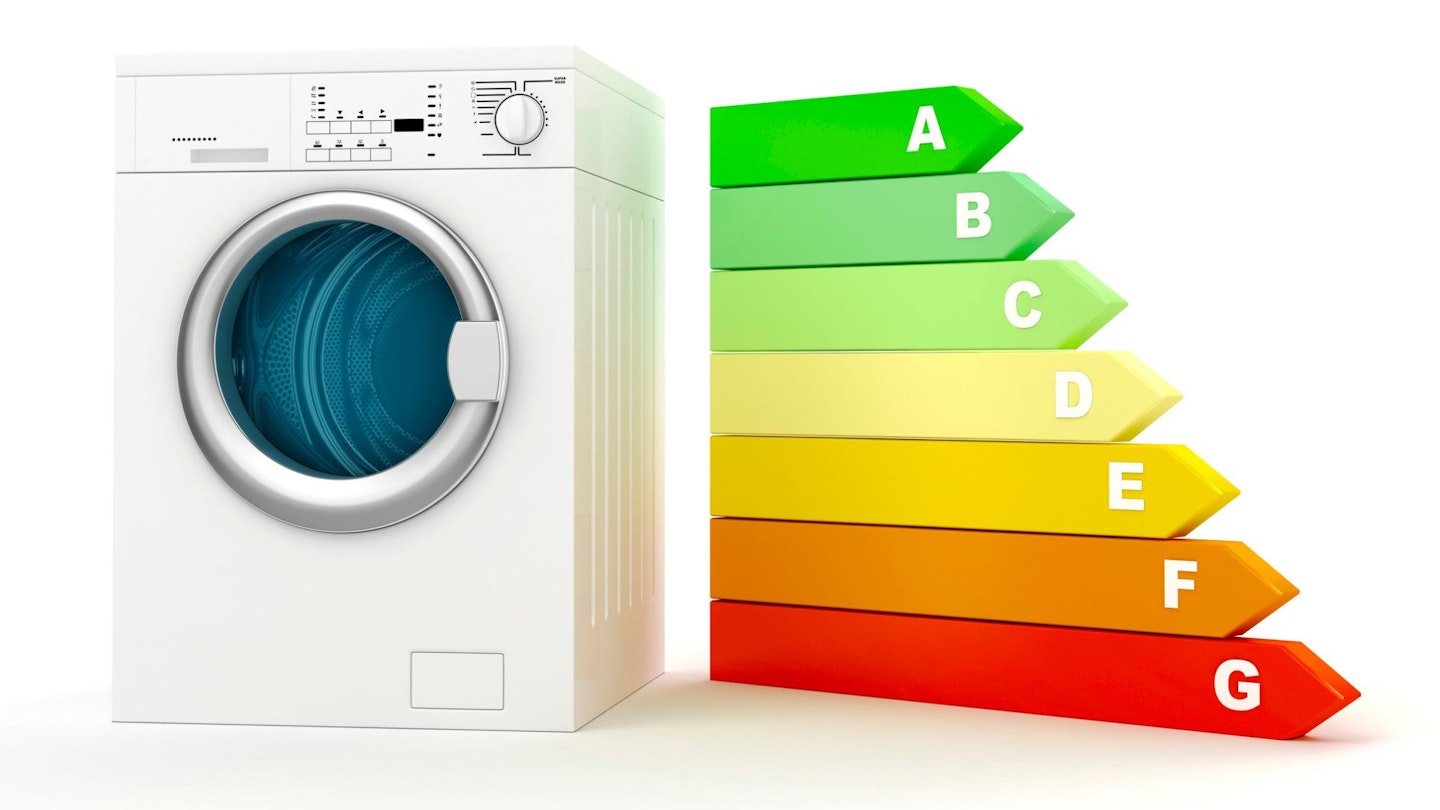
The energy ratings were revised in 2021 to ensure there was space left on the scale for improvement. On the old energy efficiency scale, appliances were rated between A+++ to D. But with modern technology, most washing machines were maxing out the scale. The new energy ratings now go from A to G and are much less confusing!
You’ll find now that there are much fewer A and B-rated appliances. Those that were previously A+++ may now be an F. This is to give the opportunity for higher ratings in the future and encourage manufacturers to make their machines even more sustainable.
Noise
For a washing machine in your kitchen, you’ll want one that’s quiet to not distract from family life.
The regular noise level for a washing machine is between 74 decibels (dB) and 77dB. Anything quieter is a bonus and anything louder could risk sounding like a jet engine.
If you’re after the quietest washing machine available, look for those that have been awarded the Quiet Mark Award. This certification makes it easier for us as consumers to find the quietest options for our homes.
Wash Programmes
Pre-programmed washes can prove to be incredibly handy, and you'll find some more useful than others depending on your wardrobe and household needs. Here are just a few worth looking out for:
Fabrics: Most washing machines have separate programmes for fabrics, and these can include synthetics, cottons, wool, and delicates. If you have a heavy synthetic wardrobe, make sure to choose a machine that has this programme included for the best clothing care.
Sports: A sports programme is ideal for cleaning those extra-grubby clothes that have been swamped in sweat, stains, and odours. Great for active families, this could prove useful for deep cleaning the clothes without damaging the fabric.
Baby Cycle: Similar to the sports programme, a baby programme is designed to remove messes caused by mucky pups. However, the intensive programme also includes several rinses to remove as much detergent from the clothing as possible.
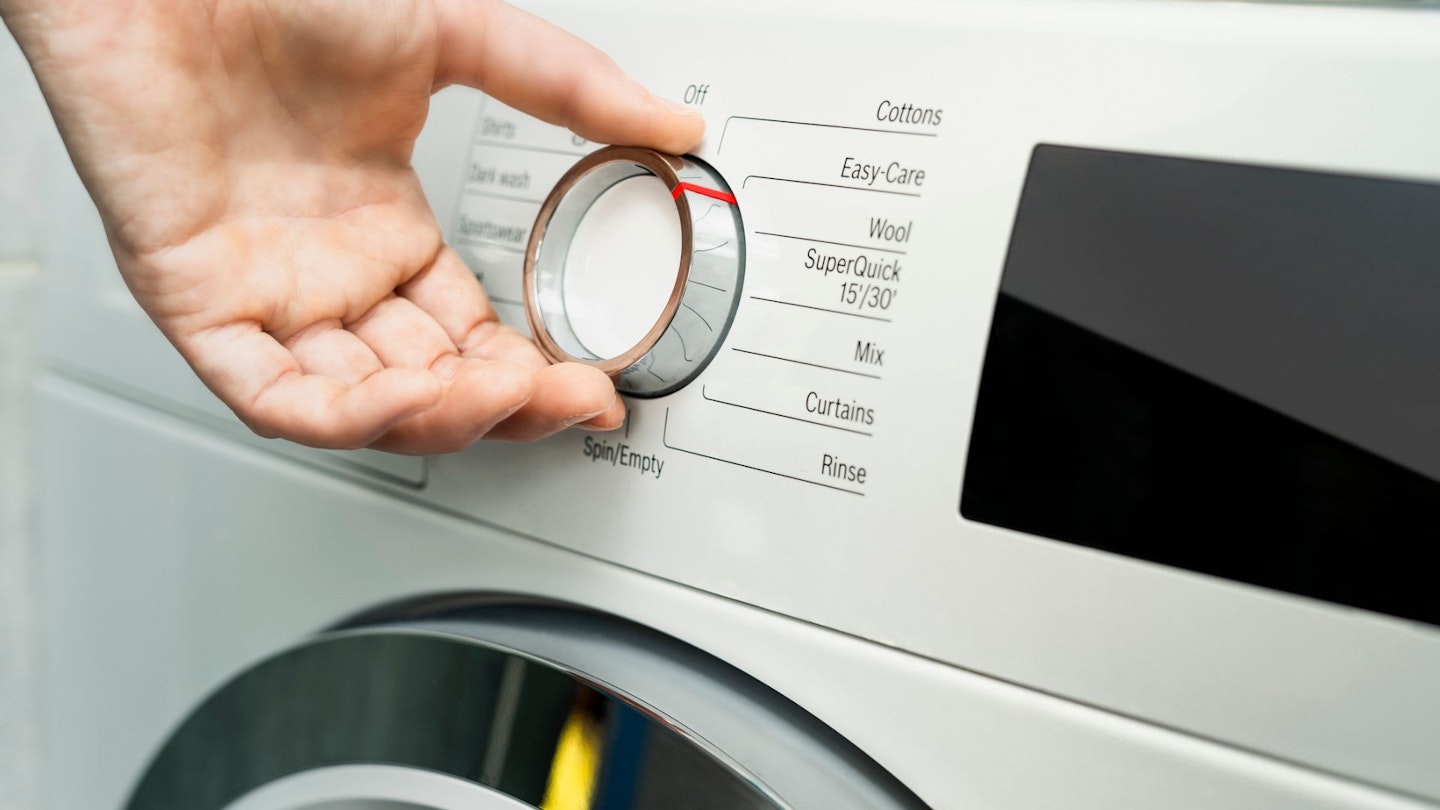
Quick Wash: If you often find your need clothes washed pronto or last minute, choosing a machine with quick wash cycles will get your clothes freshened up in as little as 15 minutes.
Eco: This programme typically lasts longer but it should save you energy.
Allergy: If you have asthma or are prone to allergies, this cycle targets allergens to remove from your garments.
Anti-Crease: Also known as pre-ironing, this programme should help prevent clothes from getting creased in the cycle to save you from extra ironing post-wash.
Self-Cleaning
It's important to clean your machine regularly to ensure it keeps performing its best. Some washing machines come with a self-cleaning cycle that'll 'clean' the machine for you to remove dirt and leftover washing powder or detergent in the drum.
Smart Features
It seems you can control everything from your smartphone or via voice control these days, and that applies to your washing machine too! Washing machines with smart features connect to your phone via WiFi so you can control your machine remotely. This means you can use the app to start a cycle, see how long is left, and even get updates on the maintenance needs of your machine.
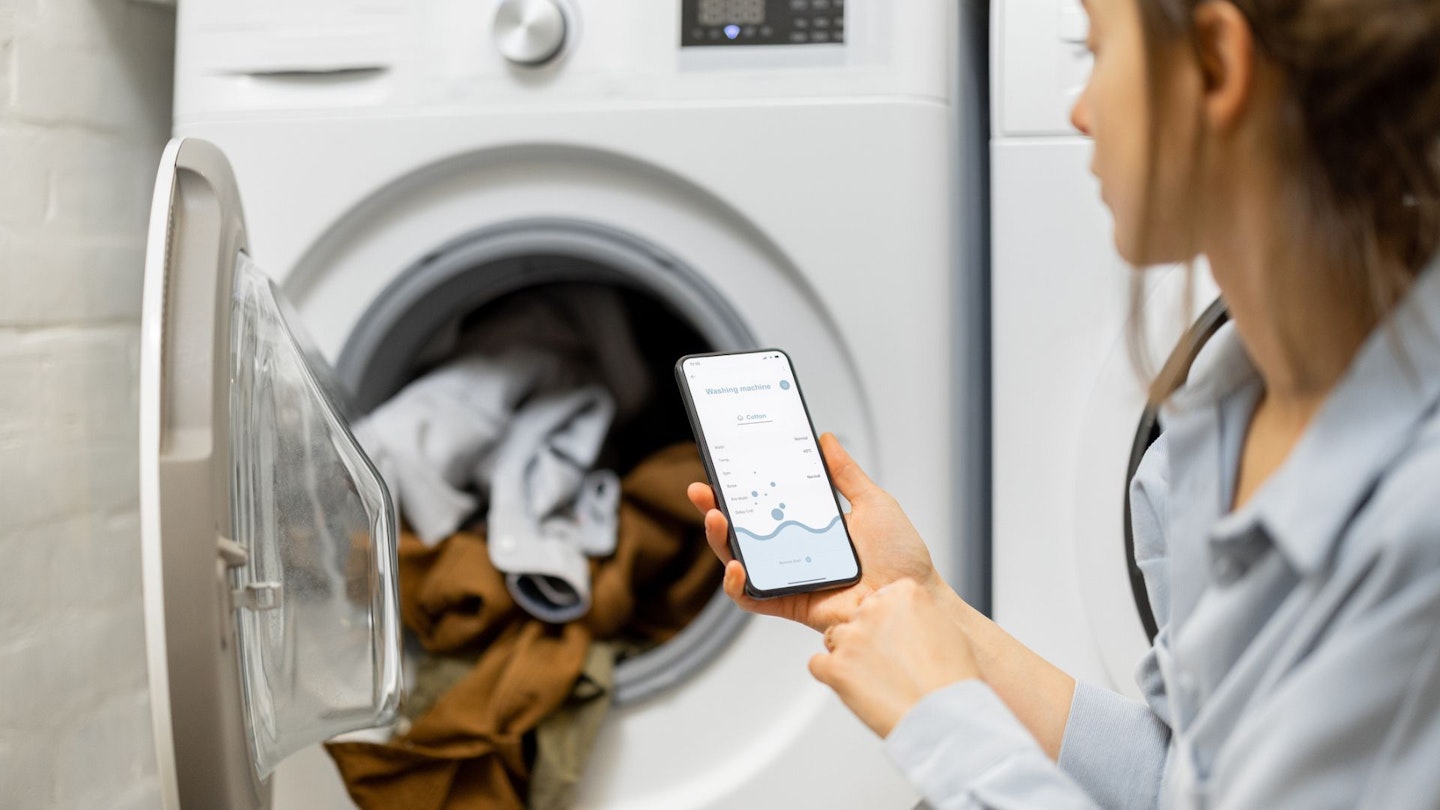
Sensor-Guided Wash
Washing machines with sensor-guided washes are fitted with built-in sensors to automatically adjust the amount of heat, water, and spin speed needed to wash your laundry load. This adjustment can ensure you don't use too much energy or water on a cycle and should help you save money on your energy bills.
Auto-Dosing
Similar to the sensor-guided wash, a machine with 'auto-dosing' will let you fill up your detergent drawer ahead of time and will only add the necessary amount to your wash for each cycle depending on its weight. This is a fab feature for making sure you don't use too much, or too little, detergent.
Control Panel
It comes as no surprise that different machines have different control panels; some are touchscreen, use buttons and a dial, or a combination of each. We'd recommend choosing one that you think will be the easiest to understand and operate. The last thing you need is to be flummoxed and needing to refer to the instruction manual with every wash.
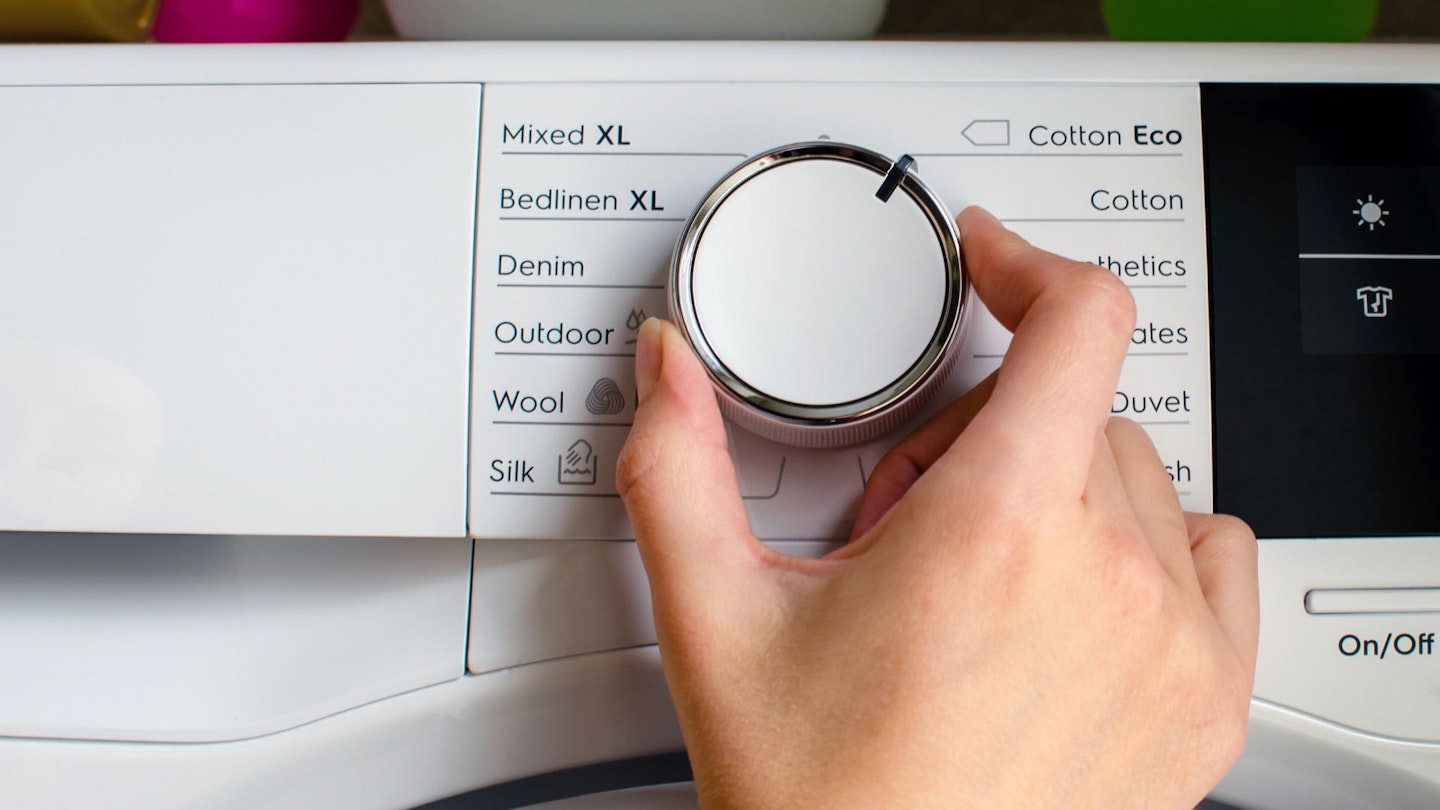
Aesthetic
We’re always a sucker for a good-looking machine, and so you could be forgiven for picking a machine based on its aesthetic. If you don’t have the luxury of integrating your machine, you might want to pick one that best matches your kitchen and other appliances.
If you have all-white appliances, a smart white washing machine might do nicely. Or if you have dark cabinets and want to keep the appearance of your washing machine minimal, opt for one that’s black instead.
How To Install A Washing Machine
Most retailers offer installation and the removal and recycling of your old machine. It is an added cost (up to £50 for both for freestanding, £120 for integrated) but it does come highly recommended if you don’t consider yourself to be particularly DIY-savvy or want to deal with the faff of moving and recycling a bulky appliance yourself.
However, if you do want to install your freestanding or integrated washing machine yourself to save a bit of money, we’d recommend following this installation guide from ao.com which takes you step-by-step through the process to get your machine in place.
How To Clean A Washing Machine
Giving your machine a regular clean can help it go the distance and keep your machine, and clothes, smelling lovely and fresh. You can clean your washing machine using dedicated washing machine cleaners, or by using natural ingredients at home.
How To Clean A Washing Machine With Cleaning Products
There are commercially available washing machine cleaners that not only oust the grime within your washer, but they’ll also do it safely without damaging your machine. As well as being easy to use, washing machine cleaners can protect the inner parts of your machine, remove odours and grime, kill bacteria, and reduce the risk of mould.
Make sure to follow the instructions on the product. In most cases, you simply need to add the required dose to the detergent drawer, leave the drum empty, and run at a high temperature.
How To Clean A Washing Machine With Natural Ingredients
Clean My Space recommends creating a paste with two parts baking soda and one part water to help lift any build-up and smells on the inside of the drum. Apply directly to the inside of the machine using a sponge before wiping out with a wet microfibre cloth.
Then take a cup of white vinegar with 10 drops of tea tree essential oil to break down soap scum, mould, and odours, pouring directly into the detergent drawer and setting your cycle to the hottest possible on your machine.
Where To Buy A Washing Machine?
To look for a quality washing machine, we’d recommend the following retailers. As well as having the best washing machines available, all of which are reputable for their quality customer service.
You can also buy direct from washing machine manufacturers.
How Long Do Washing Machines Last?
Many manufacturers say that your washing machine should last approximately 10 years before it needs replacing. However, this can really vary depending on your washing machine usage and maintenance. And saying that, some things just break! That’s why we’d recommend buying a machine that comes with a decent warranty to have you covered for those first few years.
There are a few tell-tale signs you can look out for which will help you determine if it’s time to invest in a new washing machine:
It’s not draining properly – simple blockages in the drain hose can be easy to fix, but if this becomes a recurring issue there’s something further afoot.
It’s noisier than usual – likewise, if your washing machine has become louder over time, this could be a sign that the machine’s bearings need investigating.
Clothes come out soaking wet – if it’s run a spin cycle and clothes are still sopping wet, the machine's motor could be worn out.
It’s no longer fit for purpose – if you bought your machine as a couple and now have a growing family of five, that small drum machine just won’t cut it.
It’s old – if it’s been a good few years and there are new models out, you might find it’s time to retire your old machine.
